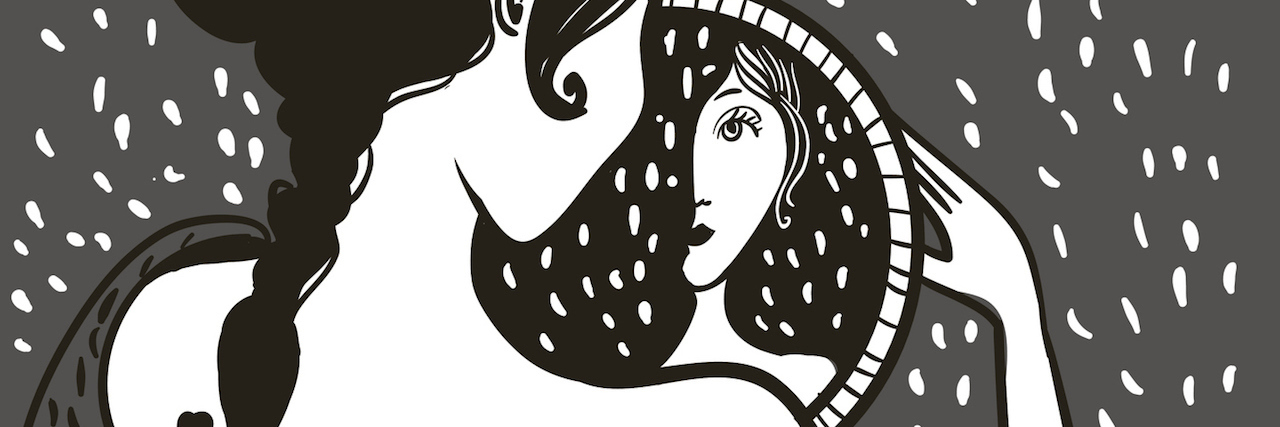A woman struts down the street. Her newly dyed burgundy hair is as shiny as her brand new purple lip gloss. She owns the sidewalk with the confidence of a world-famous runway model on the catwalk. Everything from her silver, sparkly Michael Kors heels to her pink tulle skirt scream, “Look at me!” Her smile is infectious, her energy and enthusiasm radiating from her core. Speech is flirtatious, bold, witty and rapid. Words come easily as she hijacks every conversation.
• What is Bipolar disorder?
I don’t recognize her.
A woman frantically paces path and forth in her bathroom. Her black, uncombed hair is as dark as the mascara running down her face. She collapses onto the floor with hopelessness. Everything from her closed off body posture to her tear-streaked face scream, “Don’t look at me!” Her smile is nonexistent, her face blank with dead eyes. Speech consists of short sentences, every word a struggle to get out. Words seem impossible as she fails to contribute to any conversation.
I don’t recognize her.
One of the hardest facets of my bipolar condition, beyond the actual symptoms I’ve experienced, has become questioning my identity. I have been both the enthusiastic, manic woman strutting down the sidewalk and the numb, depressed woman lying on the floor. While no one should be defined by their mental illness, it is hard when a mood disorder makes me question who I really am.
“Which of my feelings are real? Which of the me’s is me? The wild, impulsive, chaotic, energetic, and crazy one? Or the shy, withdrawn, desperate, suicidal, doomed, and tired one? Probably a bit of both, hopefully much that is neither.”
― Kay Redfield Jamison, “An Unquiet Mind: A Memoir of Moods and Madness”
As Kay Redfield Jamison illustrates in her memoir on living with bipolar disorder, mood episodes impact pretty much every aspect of what people consider one’s personality. It alters the way I perceive myself, others and the world. My appearance changes: make-up, fashion style, hair color and facial expressions. My actions change, everything from how I engage in conversations to how I think. Everything that defines a person (interests, goals, extraversion vs. introversion, confidence, motivation, thinking patterns) changes when I am depressed or manic. If nearly every way I define myself changes based on my mood state, who am I as a person? It becomes hard to believe that I am more than my condition.
There are some days during which I completely forget about having a mental illness diagnosis. I don’t question whether my motivation, energy and happiness are real or represent some degree of mania. My brain isn’t frozen by anxiety, desperation, hopelessness, worthlessness and recurring thoughts of death. I recognize pieces of myself, how I felt before terms like “DSM,” “mood stabilizers,” “grandiosity,” and “suicidal ideation” ever entered my life.
On those days, I recognize who I see looking back in the mirror.
Getty image via Kate Shamanska

